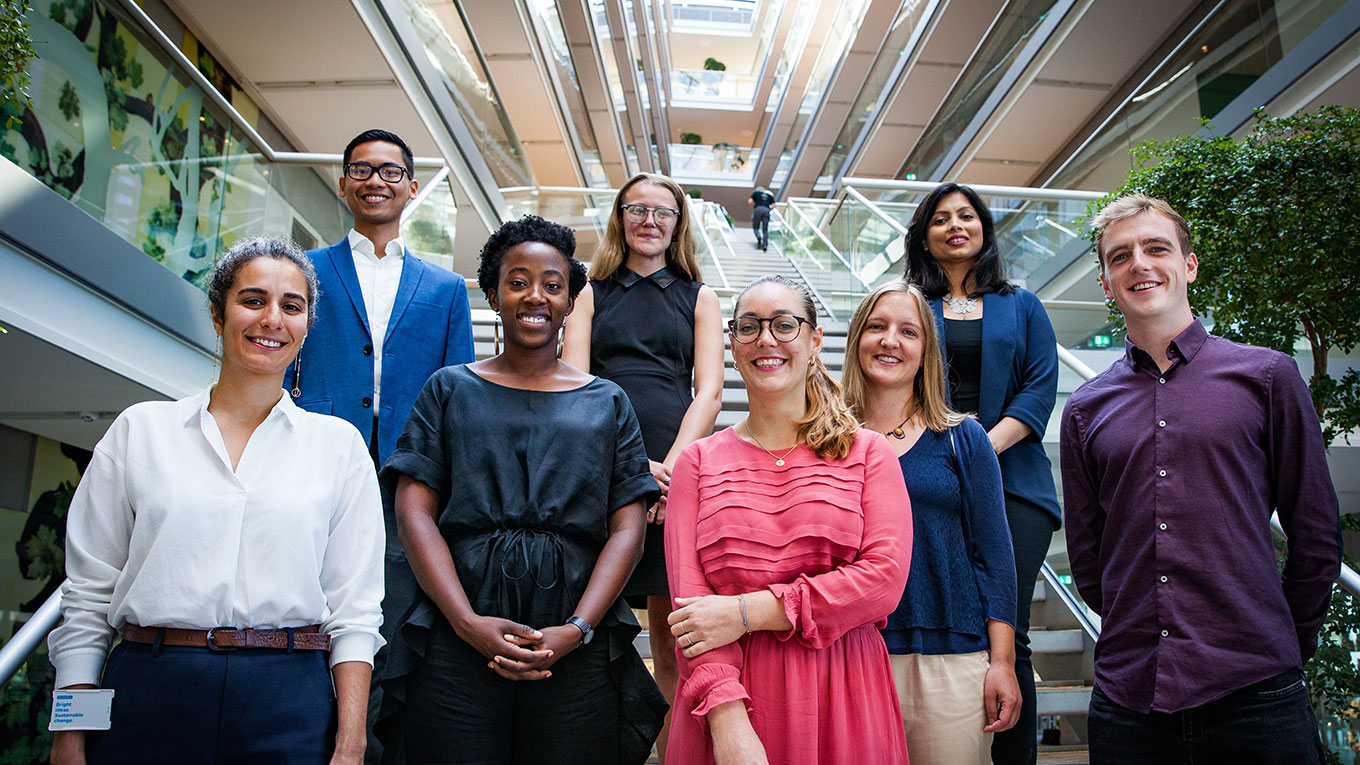Between 11:30 a.m. and 2 p.m. every weekday, employees at the Danish engineering consultancy Rambøll walk away from their devices and desks and head to a light-filled atrium that extends seven floors and acts as a central artery along which common spaces are located, including the canteen. Here, 1,500 individuals gather—not to listen to a lecture or sit through a meeting, but to share a company-catered meal, a daily practice of communal lunch that encourages them to get to know one another in an informal way.
This August, I was one of eight professionals from around the world who work in urban planning, engineering, natural resource and systems management, policy, and economics invited to participate in a workshop in Denmark known as the Copenhagen Urban Lab. Organized by Rambøll and hosted by various public and private sponsors, the Lab had a mission—to develop mitigation strategies for urban heat island in the cities of Copenhagen and Frederiksberg. The one requirement? That our class eat every meal together, in the spirit of Danish culture.
That those 10 days enhanced my knowledge of the impacts of urban heat isn’t surprising. More important, the collaborative experience led me to reexamine my own notions about sharing, from the group dynamic during each meal to unexpected discussions about spirit animals. Underlying the program’s agenda was one simple rule: “You will be and act as one group for the entire Lab.” This thread of unity and collectivism embodies the Nordic region’s cultural, political, and corporate ecosystem, which supports cross-sectional sharing and provides a road map for how designers can encourage a similar platform for interaction within the profession. The methods and objectives regarding how we were to share knowledge with one another helped clarify expectations, making them feel much more personal and human than the “sharing economy,”which has been upheld as the gold standard of next-generation problem solving.

Copenhagen Urban Lab 2019
As a concept and practice, the sharing economy continues to generate as much buzz as the industries and companies with which it’s associated. Online platforms such as Uber, Airbnb, and bike-share programs have made the sharing economy synonymous with consumable goods and services exchanged between peers, all through the ease of a phone app or online site. The definition should be broader. The international environmental network Friends of the Earth, for instance, defines it as a system that focuses on citywide sharing as a means for improving environmental sustainability and equity among citizens.
Indeed, the model is evolving to create a stronger collective body of knowledge based on human experience and expertise. This new iteration can best be described as “a culture of sharing,” a more collaborative interaction and exchange of information and ideas, uninhibited by notions of competitive confidentiality.
In some places, a sharing culture is already deeply embedded in society; we can learn from those examples to develop an environment for the free and open flow of information. The recently published book Generation Share (Policy Press) covers more than 200 case studies on how sharing culture is transforming lives, “from the woman who created a school based on sharing and brought the birds back to an impoverished, polluted neighborhood to the farmer-footballer who shares his love of gardening to bring peace [to] a divided community.” American interpretations of capitalism, competition, and individualism can sometimes promote secrecy, valuing intellectual property over everything else. The Lab, by contrast, flipped isolated competitiveness on its head.
Organized by a cross-section of corporate, municipal, and nonprofit players, the Lab was led by Rambøll, cohosted by the City of Copenhagen and the municipality of Frederiksberg, and supported by the Young Water Professionals Denmark, a member-driven network for young professionals within the Danish water-resource management and planning sector. Influencers from various backgrounds were brought together to work toward a mutual objective of exploring mitigation strategies for the impacts of urban heat islands.
A one-group approach
The rule that we “be and act as one group” was reiterated as an expectation not only for how we were to learn but also for how we were to exchange information and spend our spare time. Before we arrived, the Lab organizers established objectives for exchanging data that would benefit all—from gaining insight from knowledgeable participants to sharing the Nordic approach to urban planning, water management, and climate resilience and adaptation. Our agenda included an academic program with 17 presentations.
Hans Ulrik Rosengaard, an assistant professor at Roskilde University east of Copenhagen, outlined the Danish concept of “facework,” explaining that Danes are not accustomed to saying please and thank you. Facework encourages the practice of sensing and accommodating other standards of decorum by acknowledging that “usual assumptions about social behavior might not work” in a multicultural setting, Rosengaard said. Openness and tolerance are vital and provide a toolbox for how to problem solve as a group by respecting cultural differences and perspectives.




